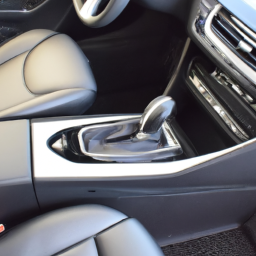
Replacing the shift solenoid on a BMW 428i xDrive F33 Cabrio involves several steps. click here for more details on the download manual…..
- Unlock this Hidden Feature in Your BMW
- BMW 428i xdrive ACCELERATION POV 245HP
Here’s a reverse order guide to help you understand the process:
### 6. Reconnect the Battery
– Reconnect the negative terminal of the battery and ensure it is secure.
### 5. Reinstall the Transmission Pan
– Align the transmission pan with the gasket.
– Tighten the bolts in a crisscross pattern to ensure an even seal.
– Torque the bolts to the manufacturer’s specifications.
### 4. Install the New Shift Solenoid
– Position the new shift solenoid in the designated slot.
– Connect the electrical connector to the solenoid securely.
### 3. Remove the Transmission Pan (if applicable)
– Drain the transmission fluid by removing the drain plug or tilting the pan.
– Remove the bolts securing the transmission pan and gently pry it off.
– Be careful not to damage the pan or the gasket.
### 2. Access the Shift Solenoid
– Depending on the model, you may need to remove other components to access the solenoid. This could include removing the battery, air intake, or other obstructions.
– Locate the shift solenoid, which is typically on the transmission valve body.
### 1. Prepare the Vehicle
– Ensure the vehicle is on a level surface and securely lifted using jack stands.
– Disconnect the negative battery terminal to prevent any electrical shorts or shocks.
### Additional Notes:
– Always consult the vehicle’s service manual for specific torque specifications, part numbers, and detailed instructions.
– Work in a clean environment to avoid contamination.
– Dispose of old transmission fluid and parts responsibly.
By following these steps in reverse order, you will have a clearer understanding of the shift solenoid replacement process for your BMW 428i xDrive F33 Cabrio.
The HVAC system, which stands for Heating, Ventilation, and Air Conditioning, is a crucial component in modern vehicles, providing comfort and ensuring a pleasant cabin environment for occupants. This system is responsible for regulating temperature, humidity, and air quality within the vehicle, making it essential for both comfort and safety.
The heating aspect of the HVAC system typically utilizes the engine’s coolant, which is heated during operation. This hot coolant circulates through a heater core, similar to a small radiator, where air from the cabin is blown over it, warming the air before it’s directed into the passenger compartment. This process is particularly important during colder months, ensuring that the cabin remains warm and comfortable.
and comfortable.
Ventilation is another critical function of the HVAC system. It ensures that fresh air enters the vehicle while stale air is expelled. This is achieved through a series of ducts and fans that can draw air from outside or recirculate cabin air, depending on the driver’s preferences. Proper ventilation is also crucial for maintaining air quality, as it helps to reduce the buildup of pollutants, odors, and moisture inside the vehicle.
The air conditioning component cools and dehumidifies the air. It usually operates through a refrigerant that absorbs heat from the cabin air and releases it outside, allowing for a comfortable environment in hot weather. The HVAC system is typically controlled via a user-friendly interface, allowing occupants to adjust temperature settings, fan speeds, and airflow direction.
Overall, the HVAC system is vital not just for comfort, but also for safety, as it can help prevent fogging on windows and maintain visibility during adverse weather conditions. Its integration into vehicles has significantly enhanced the driving experience, making it a fundamental part of automotive engineering.